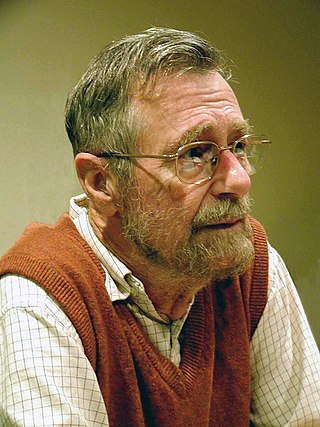
Computing is any goal-oriented activity requiring, benefiting from, or creating computing machinery. It includes the study and experimentation of algorithmic processes, and development of both hardware and software. Computing has scientific, engineering, mathematical, technological and social aspects. Major computing disciplines include computer engineering, computer science, cybersecurity, data science, information systems, information technology, digital art and software engineering.

Computer science is the study of computation, information, and automation. Computer science spans theoretical disciplines to applied disciplines. Though more often considered an academic discipline, computer science is closely related to computer programming.

Edsger Wybe Dijkstra was a Dutch computer scientist, programmer, software engineer, and science essayist.

Malware is any software intentionally designed to cause disruption to a computer, server, client, or computer network, leak private information, gain unauthorized access to information or systems, deprive access to information, or which unknowingly interferes with the user's computer security and privacy. Researchers tend to classify malware into one or more sub-types.
Software engineering is an engineering-based approach to software development. A software engineer is a person who applies the engineering design process to design, develop, maintain, test, and evaluate computer software. The term programmer is sometimes used as a synonym, but may emphasize software implementation over design and can also lack connotations of engineering education or skills.
In computer science, a compiler-compiler or compiler generator is a programming tool that creates a parser, interpreter, or compiler from some form of formal description of a programming language and machine.

Digital art refers to any artistic work or practice that uses digital technology as part of the creative or presentation process. It can also refer to computational art that uses and engages with digital media.
In computer science, automatic programming is a type of computer programming in which some mechanism generates a computer program to allow human programmers to write the code at a higher abstraction level.
SCIgen is a paper generator that uses context-free grammar to randomly generate nonsense in the form of computer science research papers. Its original data source was a collection of computer science papers downloaded from CiteSeer. All elements of the papers are formed, including graphs, diagrams, and citations. Created by scientists at the Massachusetts Institute of Technology, its stated aim is "to maximize amusement, rather than coherence." Originally created in 2005 to expose the lack of scrutiny of submissions to conferences, the generator subsequently became used, primarily by Chinese academics, to create large numbers of fraudulent conference submissions, leading to the retraction of 122 SCIgen generated papers and the creation of detection software to combat its use.
A worksheet, in the word's original meaning, is a sheet of paper on which one performs work. They come in many forms, most commonly associated with children's school work assignments, tax forms, and accounting or other business environments. Software is increasingly taking over the paper-based worksheet.
Kevin C. Lano is a British computer scientist.

David Gries is an American computer scientist at Cornell University, United States mainly known for his books The Science of Programming (1981) and A Logical Approach to Discrete Math.
Computational humor is a branch of computational linguistics and artificial intelligence which uses computers in humor research. It is a relatively new area, with the first dedicated conference organized in 1996.

The Postmodernism Generator is a computer program that automatically produces "close imitations" of postmodernist writing. It was written in 1996 by Andrew C. Bulhak of Monash University using the Dada Engine, a system for generating random text from recursive grammars. A free version is also hosted online. The essays are produced from a formal grammar defined by a recursive transition network.
Artificial intelligence and music (AIM) is a common subject in the International Computer Music Conference, the Computing Society Conference and the International Joint Conference on Artificial Intelligence. The first International Computer Music Conference (ICMC) was held in 1974 at Michigan State University. Current research includes the application of AI in music composition, performance, theory and digital sound processing.

Lorinda Cherry was an American computer scientist and programmer. Much of her career was spent at Bell Labs, where she was for many years a member of the original Unix Lab. Cherry developed several mathematical tools and utilities for text formatting and analysis, and influenced the creation of others.
Parody generators are computer programs which generate text that is syntactically correct, but usually meaningless, often in the style of a technical paper or a particular writer. They are also called travesty generators and random text generators.
Shai Halevi is a computer scientist who works on cryptography research at Amazon Web Services.
Semantic Scholar is an artificial intelligence–powered research tool for scientific literature developed at the Allen Institute for AI and publicly released in November 2015. It uses advances in natural language processing to provide summaries for scholarly papers. The Semantic Scholar team is actively researching the use of artificial intelligence in natural language processing, machine learning, human–computer interaction, and information retrieval.










